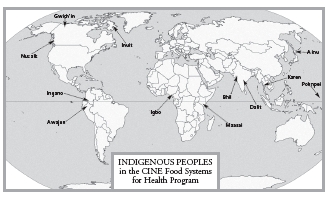We have blogged a few times about niche modeling and how to improve it. Below Mohamed Fawzy Farag Nawar briefly highlights what will become a useful resource in this field, Lifemapper (the data for the modeling comes from GBIF), but points out some limitations.
Lifemapper.org is an initiative to implement online some sort of generic model to predict where a species might exists based on where it was collected, or where it was otherwise documented that it lived. Fine. But here is the results of the model on the species Clivipollia pulcher. This is a marine mollusk that was found along the coasts of eastern Australian, Papua New Guinea and the Philippines. You will see on the map of predicted distribution that the model suggests it might be found in various places inland in central Africa and Latin America. That is what you get when essential prior knowledge is not introduced to the model. Something like telling the developer of the model that marine species should be modeled to a different set of environmental data than Worldclim, which should only be used for terrestrial fauna and flora. Agricultural species are included in Lifemapper, though again the predicted distributions will have to be looked at fairly carefully before use.
